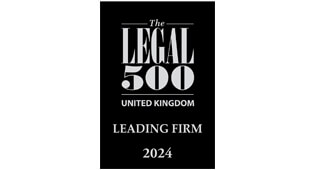Changes to the Civil Procedure Rules on ADR
Settling business disputes out of court is almost always the preferred option, avoiding the added time and costs of court and potential harm to business reputation.
Changes to the Civil Procedure Rules (CPR) now go beyond encouraging the parties to use an Alternative Dispute Resolution (ADR) procedure and have handed the Courts the power to order parties to engage in ADR and impose costs penalties for failing to do so.
Alternative dispute resolution is essentially a way of resolving commercial disputes without going to court through such mediums as mediation, arbitration, and negotiation and it has become an integral part of dispute resolution.
Changes to Civil Procedure Rules 1
Since 1999 all civil justice has been guided by the ‘overriding objective’ of CPR Rule 1, which aims to ensure all cases are dealt with fairly, reasonably and proportionately. However, the ruling in Churchill v Merthyr Tydfil Borough Council earlier this year, that the Court can stay proceedings and order a non-court based dispute resolution, prompted a review of the rules.
The changes to CPR1 now extend to “promoting or using alternative dispute resolution” and the Court’s case management duties now include “ordering or encouraging the parties to use and facilitating the use of ADR”.
Whilst the Courts can now order ADR they are still required to exercise their discretion and will need to consider:
- Which method of ADR is suitable
- Whether the parties have legal representation who can engage in ADR
- How urgent the case is and if ADR would cause delays
- The costs of ADR as against the resources of the parties
- Whether ADR is likely to be successful on the facts
- Whether there is an imbalance of power between the parties that would make ADR unsuitable.
Order for Alternative Dispute Resolution
The rules governing costs awards have also been updated such that when the Court exercises its discretion at the end of a case it will now have to consider whether “a party failed to comply with an Order for Alternative Dispute Resolution or unreasonably failed to engage in Alternative Dispute Resolution”(CPR 44). This means that the Courts can impose cost penalties on parties who bypass ADR without valid reason and parties will need to justify why ADR was not pursued.
These changes align with the overall aim to promote efficient dispute resolution before litigation, to ensure Court is the final option only where ADR is not feasible.
“We were expecting these changes to enshrine the decision in Churchill v Merthyr Tydfil BC into the CPR and it’s a stark reminder to businesses that court proceedings should be a last resort. ADR has always been encouraged; the real change now is that the Courts can actively now order ADR – taking the decision out of our hands meaning we need to be even more pro-active in our approach” said Commercial Litigation Solicitor, Laura Campbell.
Welcoming the changes, Laura added:
“We have always looked at what is the best solution for the client and ADR is often the most effective way to resolve a business dispute. However, in the past not all parties have been open to ADR and so with it no longer being just an option, those reluctant parties will be forced to actively explore an out of Court settlement’.
ADR in Commercial Disputes
The clear message is that commercial disputes should be met with a collaborative approach and so, it is now vital that parties are willing to engage in ADR as early as possible and essential that legal advisers are more creative in their solutions.
“More than ever, its sensible for clients to involve specialist commercial litigation solicitors at the earliest opportunity if they have concerns about a business dispute. If not, they risk incurring the costs of Court proceedings only for the Court to halt those proceedings and order ADR or worse, being ordered to pay penalties for failing to do so”.
How can we help?
For legal advice on resolving business disputes contact our specialist commercial litigation solicitors on 0161 785 3500 or email enquiries@pearsonlegal.co.uk
Subscribe to our newsletterPlease note that the information and opinions contained in this article are not intended to be comprehensive, nor to provide legal advice. No responsibility for its accuracy or correctness is assumed by Pearson Solicitors and Financial Advisers Ltd or any of its members or employees. Professional legal advice should be obtained before taking, or refraining from taking, any action as a result of this article.








